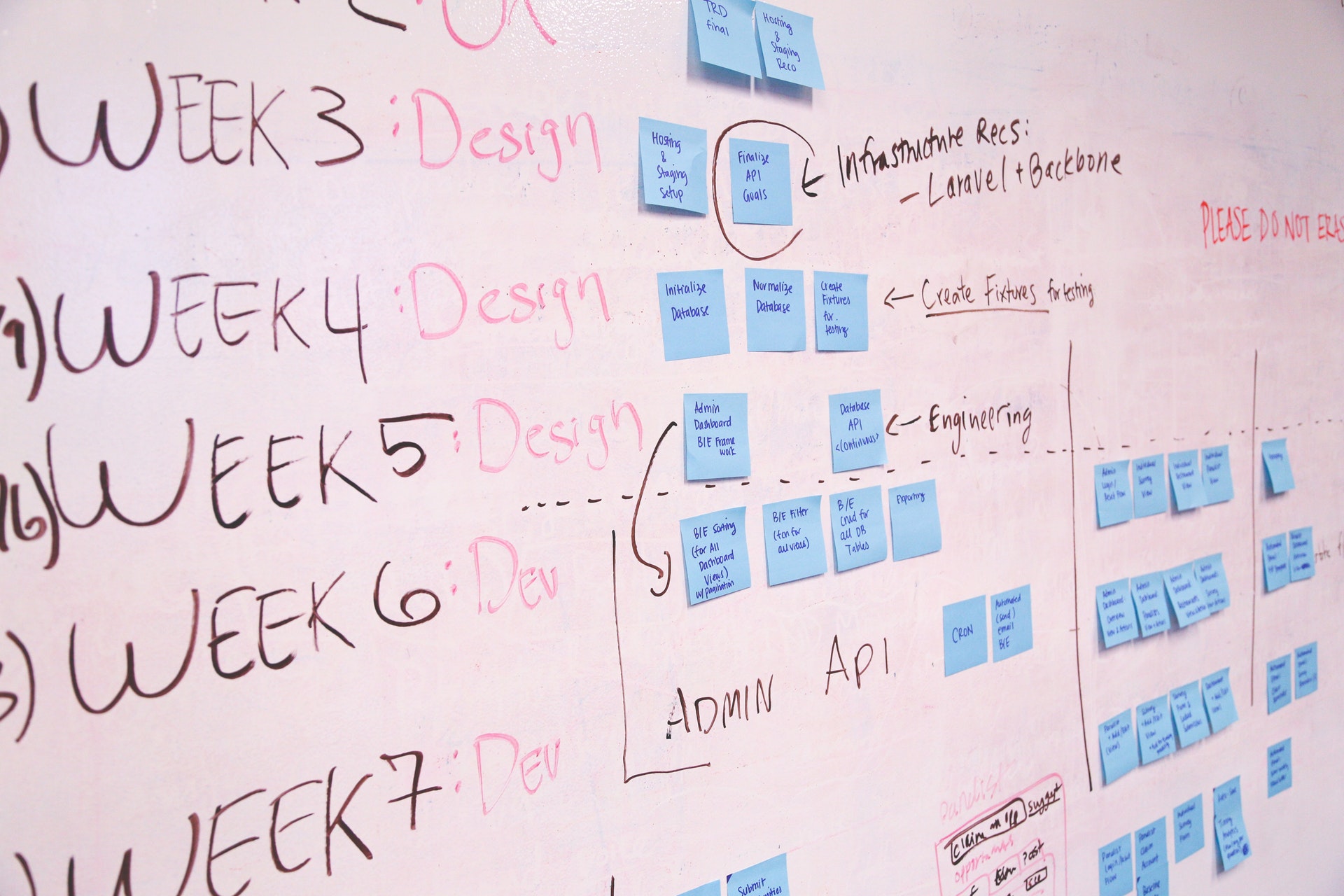ADK sees a wide range of development projects. Over the last year as a project manager, I have managed app or website development projects for a startup restaurant chain, a world renowned hospital, an e-commerce construction supplies startup, a major global bank, a medical supplies company, and many local nonprofits. The subject matter and strategic thinking required of each of these development projects differs greatly, but there are several project management keys that remain true no matter the project.
Key 1. Make It A Good Start: front-loaded management pays dividends in the long term.
An intensive discovery process when beginning a project is an absolute necessity. Discovery and planning sow the seeds for effective project management throughout the entirety of the process. The three key determinants of success that arise from this initial period are: a well-defined statement of work approved by key stakeholders, clear responsibilities and deliverables, and a detailed UX, design, and development schedule. These are the foundations of effective project management, but it is important to remain flexible and embrace certain ambiguities. Things change. Issues arise. Different solutions come into view. But a comprehensive discovery period will allow the project manager to clearly define the project, set realistic expectations, identify adjustments to the scope, and keep people accountable.
Key 2. Client Communication: an informed client is a happy client.
If you give your money to a financial planner, you expect some insight into performance, strategy, and the state of your goals. Same goes for web development or app development. The discovery and design phases of a project typically require high involvement and review from the client, but when moving into development it is key for the project manager to keep the client informed. Good project management is not just, as key #1 describes, defining project strategy, schedules, and deliverables. Project management also requires communicating those items to the client.
Key 3. Internal Communication: keep the team together.
If client communication brings transparency to the development process, internal communication allows that process to continue moving forward. The role of the project manager is to facilitate communication, and through that, maintain development direction and team cohesiveness. Holding scrums daily or every other day allow team members to voice progress, explain plans, and discuss issues. These scrums ensure all team members are aware of all development goals and the progress made towards them.
Key 4. Stay Organized: organization and project management tools are your friend.
It’s easy, after the heavy lifting involved in planning is complete, to sit back and watch the project unfold just as envisioned. It’s easy but will certainly lead to a failed project. Effective project management necessitates continuous organization. And when it comes to organization, project management tools are your friend. There are thousands of options on the market, and finding the right tool (or more likely, tools) means satisfying four areas of project management: (1) a means of compiling and giving visibility to project information and key documents; (2) a project tracking software for defining development tasks, establishing goals, and tracking hours; (3) a means of communication within and across teams; and (4) a personal tool for managing daily and weekly tasks.
Key 5. Review It, Then Review It Again: test, test, and test again.
QA and review isn’t just meant for the end of a project lifecycle. Effective project management requires QA throughout the development process. Test early, test often, and allow testing results to help guide the development process. Project managers should be facilitating a review process with multiple users (one set of eyes is never enough), across multiple browsers (and browser versions!), and across devices (particularly important when taking into account that more than 75% of internet users in the U.S. are on mobile). Testing and review play a major role in any web development project, and the effective project managers make it a priority.
